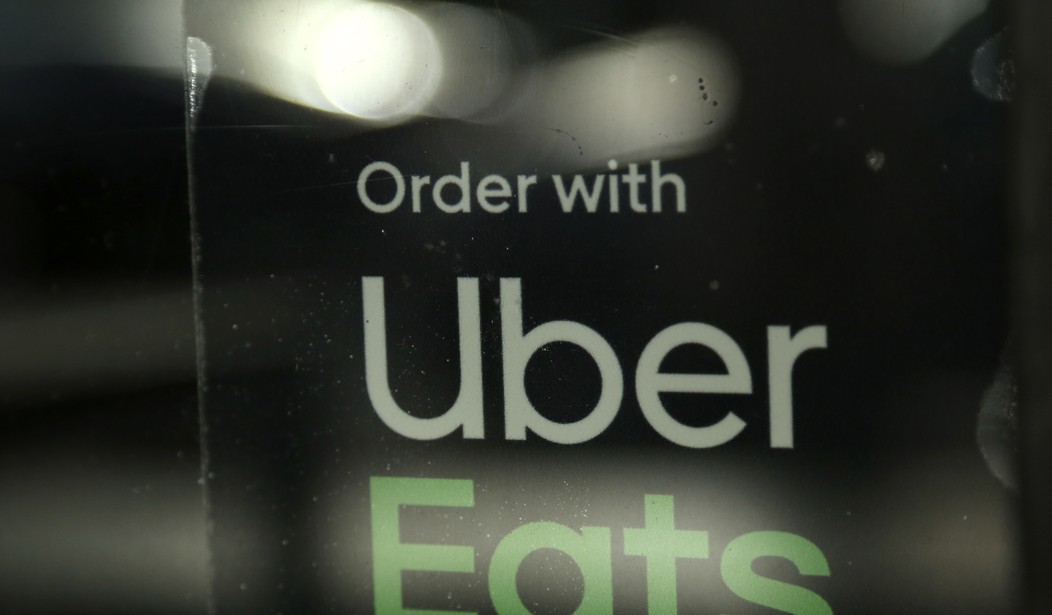Independent contractors, or "gig workers," make up about 25% of the U.S. economy with 10% of workers relying exclusively on gig work. But the term "independent" bothers Democrats because, well, they hate "independent" anything.
The unions hate independent contractors because they can't strongarm them to join a union. And the left hates independent contractors because they can't be controlled like companies and corporations.
With so many big guns targeting independent contractors, the Biden administration had no trouble finding ways to try to destroy them.
The ostensible reason Biden wants to destroy the gig economy is that the poor gig workers are "exploited" because they don't get health insurance, unemployment, paid holidays, or any of the other goodies regular employees receive. If gig workers could get all those things and maintain their independent contractor status and work flexibility, and all the other benefits of gig work, I'm sure most would jump at the chance.
But the rule change that's going into effect substantially narrows the definition of independent contractor.
The Biden administration’s new rule deals with how employers, the Department of Labor (DOL), and the courts should interpret provisions in the 1938 Fair Labor Standards Act (FLSA), which requires employers to provide people classified as “employees” with certain benefits and protections, like a federal minimum wage and overtime pay. Employers also have to fund unemployment insurance coverage, pitch in for half of Social Security and Medicare taxes for an employee, and cover workers’ compensation. But those requirements don’t exist for workers classified as “independent contractors.”
The law’s provisions are straightforward enough—except for one hiccup: The FLSA does not explicitly define who qualifies as an “independent contractor,” leaving the distinction up to interpretation. For many years, the court applied an “economic reality” test to determine whether someone was an employee or an independent contractor. In practice, this meant weighing a variety of elements of the employer-employee relationship to determine the employer’s responsibility, potentially generating inconsistent outcomes.
Donald Trump tried to streamline the definition of independent contractor. The Trump administration created five categories to determine if someone fell into the independent contractor slot.
The categories were narrower than what had previously been used but still allowed for a broad interpretation of the FLSA. But now the Biden administration has written an entirely new rule.
“A company trying to classify someone as an independent contractor is going to be left wondering which factors the Department of Labor actually cares about,” Marc Freedman, vice president of workplace policy at the U.S. Chamber of Commerce, told the Dispatch.
“There are an awful lot of people operating as sole proprietors, who, in certain situations, could end up looking like employees,” Freedman said, speaking of individuals who have made careers in contract work. “There’s two small business angles of jeopardy here: One is that you have businesses who [aren’t] going to understand when they’ve classified someone properly, and the other is you have the sole proprietors [independent contractors] who are operating as small businesses who may be in jeopardy of being able to maintain their operations.”
As an independent contractor myself, I and several of my PJ Media colleagues are concerned that we may be reclassified as "employees" rather than independent contractors.
Freelance writers and editors, who make their careers doing work for multiple publications, are among those filing suit, citing fears that they may lose business if employers are concerned about running afoul of the new rule. If, for example, their written work is deemed “integral” to the employer’s business, as defined in the new rule, it’s unclear whether they would be properly classified as a contractor under the guidance.
The only way this new rule makes sense is if you see it as a sop to the unions. They won't be satisfied until every American is either unionized or in the process of being unionized.
I'll pass, thanks.










Join the conversation as a VIP Member